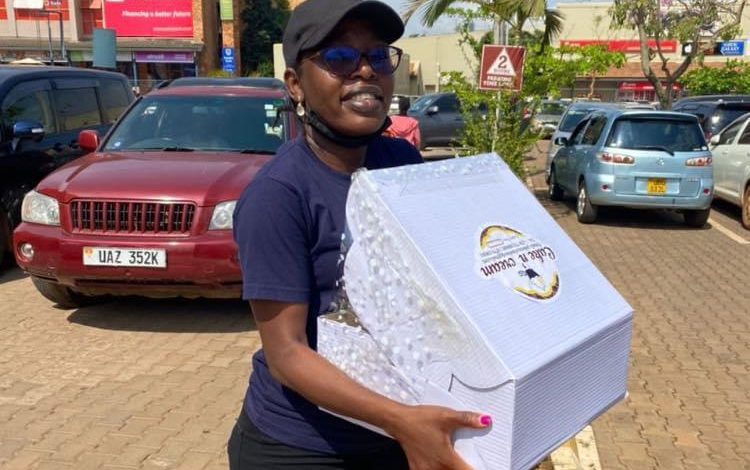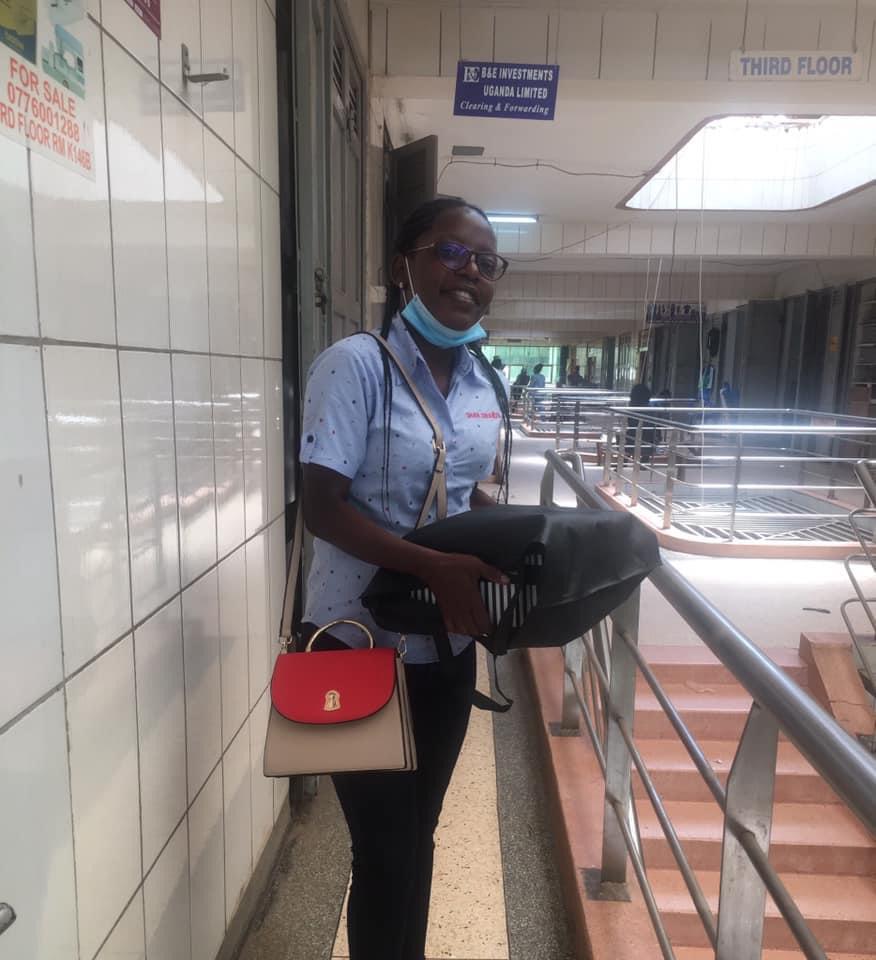
Armed with only a smartphone, Nabwire started a delivery business
Wikipedia, the free online encyclopedia describes a smartphone as a portable device that combines mobile telephone and computing functions into one unit.
In this era of internet penetration, many use smartphones to browse the internet but also social media for fun, but this was not the case with Sharon Nabwire, a 27-year-old graduate of Procurement and Supply Chain Management.
Four years ago in 2018, the then Makerere University Business School (MUBS) alumnus armed with a smartphone, internet data and airtime decided to venture into what seemed unchartered waters for her, a delivery business.
“In my third year at campus, I worked with Energoprojekt Uganda but I later worked in marketing and audit department at Research World International. I started the delivery business as a side hustle. With time, I realized I needed concentrate on my own business where my heart lay,” Nabwire recalls her journey that saw her quit formal employment.
Nabwire says the urge to quit the job grew when her bosses become uncomfortable whenever she received calls from clients who sought her services.
She says that she was determined to quit the job and go solo.
“Looking for jobs and working for other people has never been my thing. That’s where I left and started running errands. I started my company that later came to be known as Shan Errands.”

Shan Errands
Armed with a background in logistics and supply chain management, Nabwire was best suited for delivery business where she sought to emulate Jumia and DHL but also give them a run for their money in the business.
To this, she had to start a company that would ably help run people’s errands but using social media.
“I don’t deal in anything specifically but I help bring services closer to the client. When you are too busy to run your own errands, I do it on your behalf. You send me money, go buy groceries for you then deliver them,” she says.
“I can help you do the shopping or when you have already done the shopping, I come in to pick and drop the items to whichever destination you ask me to. It’s something unique that I felt would work out since the world is changing and people want their errands completed while they concentrate elsewhere,” she says.
She says that the smartphone helps her get clients through social media but also through referrals by friends and family members.
It is therefore not surprising that Nabwire got her first client through social media.
“I met Prossy on social media. By then she used to work upcountry in Gulu and asked me to help run her errands. The first task was buying her bed sheets, children clothes and send them to Gulu where she was,” Nabwire recalls.
She says that despite running errands for Prossy, the two never met until after a year.
“All this time, when her children wanted something in Kampala, she contacted me to buy and send it to Gulu.”
Nabwire charges between shs5,000 and shs30,000 depending on the urgency and kind of errand.
In a week, Nabwire can serve between 6 to 10 clients.
“That’s if the days have been good. This sometimes can be tricky. I can get like two or three and other days none (of course it rarely happens).”
She explains that to ably do her job, she employs two boda boda riders on a temporary basis to help her transport the items to clients.

Covid-19 hits hard
For a business that was young at the time the Covid-19 pandemic hit the world in 2018, Nabwire’s story is no different from many others that were affected.
“I would say to a bigger extent. I didn’t have a car. Bodas were not allowed to move at some point. I was affected because the business was just growing. Then to a smaller extent, I would work although not much. Secondly, during Covid-19 people needed bigger companies like Jumia than the ones they didn’t know of and therefore I was affected so much. Therefore, the deliveries I made during the time were to friends, family and a few that trusted me by then,” Nabwire says.
She however says her business has been able to grow after the easing of the Covid-19 lockdown and full reopening of the economy by government.
“I have got new clients. It’s a good business and unique since not everyone is doing it,” Nabwire says.
She says that clients have been able to trust her because she is good at what she does and that she can be trusted.
“I love the job and I have experience in what I do,” Nabwire says, advising young people not to only think of office jobs.
“Even self-employment is good and pays off well, even more than office jobs. It’s always difficult or hard to start but as long as you are determined to try out something new, it will always workout.”
Challenges
Nabwire says the biggest challenge is lack of enough capital to help her run errands where some of the clients require her to use her money first and they pay later.
She says this is a challenge since the capital in this case is more than what she gains but says she has to do it for the sake of keeping clients.
The 27-year-old says many people prefer to use big delivery companies like Jumia and people like her end up losing out.
“Some clients over bargain and end up eating into my small profits,” she says.
Nevertheless, Nabwire says she is happy with the business since it gives her satisfaction.



